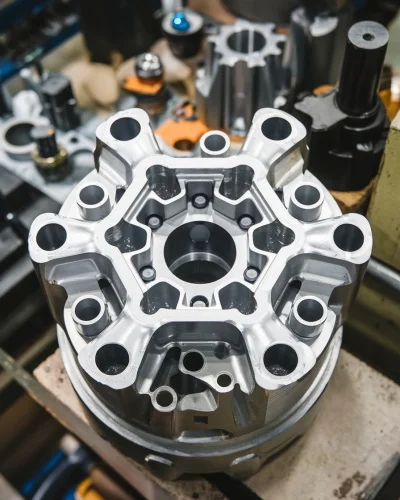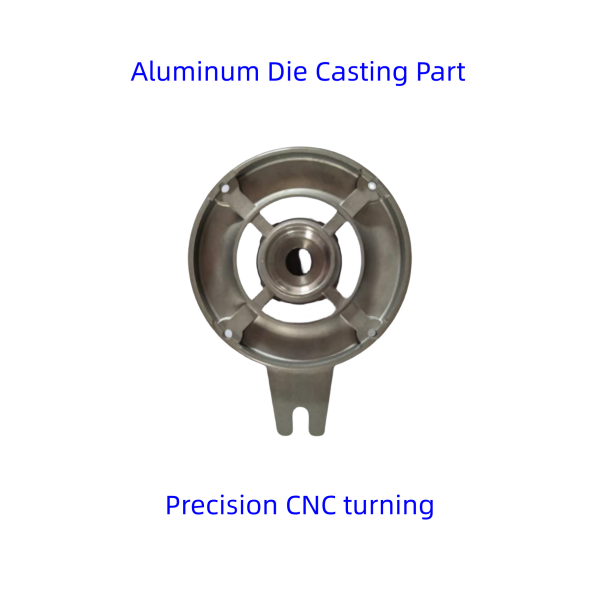How Foundry Services Enhance Manufacturing Effectiveness and Top Quality in Industrial Applications
Shop services play an essential function in enhancing production efficiency and high quality across numerous industrial applications. By implementing innovative metal spreading methods, these solutions ensure components are made with accuracy and consistency. This not just lowers lead times but also minimizes waste, fostering better cooperation between factories and suppliers. The influence of top notch parts on operational efficiency increases essential questions regarding the future of industrial production. What technologies exist ahead in this progressing landscape?
The Function of Factory Solutions in Streamlining Manufacturing Processes

Foundries frequently provide competence in alloy development, making it possible for manufacturers to use innovative materials that enhance product performance. The collaboration between foundries and manufacturers fosters a far better understanding of production demands, causing optimized procedures and enhanced item designs. By leveraging foundry services, suppliers can accomplish better versatility, adjust to changing market needs, and maintain competitiveness in the market. Generally, the role of shop services is essential in assisting in a much more economical and reliable manufacturing landscape.
Advanced Technologies in Foundry Workflow
Innovative innovations are changing factory procedures, markedly improving efficiency and precision. Automation plays an important duty, with robot systems improving repeated tasks such as molding and material handling. Furthermore, improvements in computer-aided design (CAD) and computer-aided production (WEBCAM) systems make it possible for foundries to develop complicated geometries with greater accuracy and minimized product waste.
Furthermore, the assimilation of man-made intelligence (AI) and machine knowing boosts quality control by keeping track of processes in real-time and forecasting prospective defects prior to they occur. Using innovative materials, such as lightweight alloys and compounds, additionally boosts the efficiency features of actors products.
3D printing technology is reinventing prototyping and tooling, permitting for fast personalization and minimized lead times. Jointly, these innovative modern technologies not only raise production efficiency but additionally guarantee that the final products meet strict high quality requirements, positioning shops at the center of modern-day commercial applications.
Decreasing Lead Times Via Efficient Foundry Practices
Reliable foundry methods play a necessary duty in decreasing lead times within production settings. By applying streamlined production procedures and advanced scheduling strategies, suppliers can boost operations and optimize resource allocation. These improvements not just accelerate outcome yet also add to total functional performance.
Structured Manufacturing Procedures
Streamlining manufacturing procedures is important for reducing lead times in the manufacturing market. Effective factory techniques, consisting of optimized workflows and resource administration, play an essential role in accomplishing this objective. By reducing waste and improving communication amongst groups, shops can substantially improve their operational performance. The implementation of standardized procedures additionally adds to regular top quality and faster turnaround times, making it possible for makers to react even more quickly to market demands. Additionally, the combination of advanced technologies, such as automation and real-time monitoring systems, assists in identifying traffic jams and promoting prompt treatments. Generally, an emphasis on structured manufacturing procedures not only speeds up preparations however likewise boosts the total competition of commercial applications, making certain that items satisfy customer expectations successfully.
Advanced Scheduling Techniques
Effective manufacturing procedures normally lead makers to explore sophisticated scheduling methods as a way to better decrease lead times. By utilizing innovative formulas and software, shops can enhance workflows, lining up manufacturing routines with need forecasts and resource schedule. Techniques such as Just-In-Time (JIT) scheduling decrease supply prices while making certain prompt material distribution, consequently improving functional effectiveness. Furthermore, integrating real-time information analytics allows shops to expect possible delays and readjust timetables proactively. This versatility not only simplifies procedures but also increases total productivity. Additionally, collective preparation with customers and vendors can cultivate a more synchronized supply chain, more decreasing lead times. Ultimately, article these sophisticated organizing methods encourage foundries to accomplish higher performance and exceptional top quality in their manufacturing processes.
Making Certain Precision and High Quality in Steel Spreading
Ensuring accuracy and high quality in steel casting needs a meticulous strategy that encompasses every stage of the production process. This procedure begins with mindful design and engineering of the mold and mildews, assuring they can hold up against the liquified steel's temperature and pressure. The option of top quality resources is essential, as contaminations can compromise the end product.
When the products are prepared, specific temperature control during melting and putting is basic to achieve the desired homes in the actors steel. Keeping an eye on solidification and air conditioning rates more warranties dimensional accuracy and surface coating.
Quality control methods, such as non-destructive testing and inspection, are essential to identifying defects early while doing so. aluminum casting. In addition, utilizing skilled personnel who understand the nuances of metal casting contributes substantially to preserving high standards. Generally, these methods jointly enhance the reliability and efficiency of cast elements in numerous commercial applications
Decreasing Waste and Maximizing Resource Utilization

Furthermore, reusing scrap steel within the shop itself can significantly decrease waste, transforming spin-offs right into useful sources. Lean manufacturing concepts also add to waste reduction by enhancing processes and removing unneeded steps, resulting in a lot more reliable procedures.
Regular upkeep of tools guarantees peak performance, protecting against failures that can result in lost materials. By concentrating on these techniques, foundries not just decrease costs however also add to sustainable techniques, lining up with the growing demand for environmentally responsible production methods in commercial applications.
The Competitive Benefit of High-Quality Elements in the marketplace
Premium components provide a significant affordable advantage in the foundry market, where precision and longevity are vital. Manufacturers that focus on remarkable materials and craftsmanship can enhance product efficiency and reliability, resulting in increased consumer contentment. This advantage is particularly obvious in sectors such as automotive and aerospace, where component failure can have tragic repercussions.
Top notch components usually result in lower maintenance prices and prolonged product life expectancies, which can be see here now enticing selling points for potential customers. As market demands expand for reliable and lasting innovations, the focus on top quality becomes much more critical. Business that buy high-quality shop solutions not just improve their manufacturing processes however additionally separate themselves from rivals that might give up high quality for price financial savings. As a result, the dedication to premium components ultimately converts right into a more powerful market setting and long-term company success.
Regularly Asked Inquiries
What Types of Products Do Shop Services Commonly Deal With?
Factory services commonly function with steels such as light weight aluminum, brass, best site steel, and iron, together with numerous alloys. They additionally deal with products like porcelains and composites, accommodating diverse industrial needs and requirements in producing procedures.
Exactly How Do Factory Solutions Effect Overall Supply Chain Administration?
Foundry solutions greatly boost supply chain monitoring by simplifying product sourcing, minimizing lead times, and making sure constant high quality. Their ability to give tailored services fosters cooperation among stakeholders, ultimately improving overall functional efficiency and responsiveness in manufacturing.
What Industries Advantage The Majority Of From Foundry Solutions?
Industries such as automotive, consumer, building, and aerospace items greatly take advantage of shop services. These industries count on precision spreadings to fulfill stringent high quality criteria and improve their total manufacturing procedures and item efficiency.
Are Foundry Providers Lasting and Eco-friendly?
Shop solutions can be lasting and eco-friendly, specifically when utilizing advanced modern technologies and procedures - Aluminum Casting Company. Technologies such as recycling materials, minimizing exhausts, and enhancing power usage contribute to minimizing their ecological influence in industrial applications

Exactly How Can Business Choose the Right Factory Provider?
Companies can choose the right factory provider by reviewing knowledge, manufacturing capacities, high quality accreditations, technology used, client reviews, and sustainability techniques while making sure placement with their specific project needs and long-term business goals.
Shop solutions play a necessary role in enhancing production performance and top quality throughout different industrial applications. The collaboration between suppliers and shops promotes a far better understanding of production demands, leading to optimized processes and improved item designs. Efficient shop techniques play an essential duty in minimizing lead times within manufacturing settings. By utilizing innovative algorithms and software, factories can enhance operations, aligning production timetables with demand projections and resource accessibility. Business that invest in premium shop services not only boost their production procedures but additionally distinguish themselves from rivals that may give up high quality for expense savings.